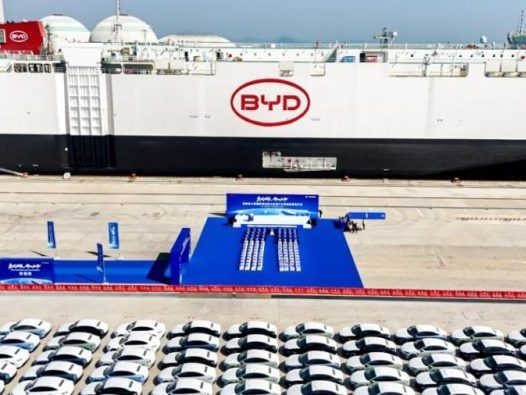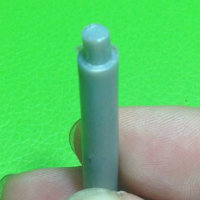Q
Is Golf GTI suitable for daily driving?
The Golf GTI is perfectly suitable for daily driving. It strikes a balance between performance and practicality. With its turbocharged engine, it offers strong acceleration when overtaking or merging into traffic, making commuting or getting around in the city more enjoyable. With features like sport-tuned suspension, it has very responsive handling, allowing drivers to navigate winding roads with precision.
In terms of space, the Golf GTI provides reasonable room for passengers and luggage. Its five-seat layout is suitable for small families or gatherings with friends. The 50-liter fuel tank reduces the frequency of refueling. The 374-liter trunk can hold daily necessities, luggage, or sports equipment.
Moreover, it comes with a rich set of standard comfort and convenience features, such as dual-zone automatic climate control, power-adjustable seats, and a user-friendly infotainment system. Safety features like multiple airbags, anti-lock braking system (ABS), and stability control system also make it a suitable choice for daily driving. However, it's worth noting that compared to some larger vehicles, the Golf GTI may not be as comfortable for long trips or for people who need an ample interior space.
Special Disclaimer: This content is published by users and does not represent the views or position of PCauto.
Related Q&A
Q
Is Golf GTI 2024 expensive to maintain?
The maintenance cost of the 2024 Golf GTI in Malaysia is at a medium-to-high level, mainly depending on the vehicle's usage and the choice of original or third-party repair centers. As a high-performance hatchback, its 2.0-liter turbocharged engine and sporty chassis require regular replacement of high-performance engine oil (recommended every 10,000 kilometers or 6 months), specialized spark plugs, and braking system maintenance. These original parts are slightly more expensive than those for ordinary models. For example, a basic maintenance service costs approximately RM800 to RM1,200, while a major maintenance service (including transmission fluid replacement, etc.) may cost over RM3,000.
However, car owners can reduce costs by purchasing original maintenance packages or choosing well-reputed third-party repair shops. Meanwhile, the GTI’s DSG dual-clutch transmission requires strict fluid replacement every 60,000 kilometers according to the manual to avoid potential issues. Notably, for such performance cars in Malaysia’s hot climate, more attention should be paid to maintaining the cooling system and tires—it is recommended to use high-viscosity engine oil (such as 5W-40) and check tire wear regularly.
If good maintenance habits are sustained long-term, the GTI’s reliability is actually not much different from that of a standard Golf. But neglecting maintenance can lead to significantly higher repair costs due to high-temperature, high-load driving.
Q
What engine is in the 2024 Golf GTI?
The 2024 Volkswagen Golf GTI is equipped with an optimized 2.0-liter TSI turbocharged four-cylinder engine, which delivers a maximum output of 245 horsepower and peak torque of 370 Nm. Paired with a 7-speed dual-clutch transmission (DSG) or a 6-speed manual transmission (available in some markets), it continues the iconic power and driving pleasure of the GTI series.
This engine adopts Volkswagen’s latest MQB Evo platform technology. By enhancing the turbocharging system and fuel injection technology, it improves low-speed torque response and fuel economy while meeting Euro 6 emission standards. For Malaysian car enthusiasts, this powertrain performs stably in tropical climates, and locally assembled (CBU) models usually retain factory tuning-making it suitable for urban driving and mountain road handling.
Notably, the GTI’s EA888 engine series is well-known for its modification potential; in the local tuning market, it’s common to easily push output beyond 300 horsepower via ECU tuning. However, car owners are advised to prioritize officially-certified modification plans to protect their warranty coverage. When compared to its classmates-such as the Honda Civic Type R or Hyundai i30 N-the GTI has a clear edge in balance, making it especially well-suited to Malaysia’s diverse road conditions.
Q
What is the L 100km on the Golf GTI 2024?
The fuel consumption (in L/100km) of the 2024 Volkswagen Golf GTI varies according to official data and actual driving conditions. Usually, it is about 8.5–9.5 liters per 100 kilometers in urban driving environments and can drop to 6.5–7.5 liters per 100 kilometers during high-speed cruising. The combined fuel consumption is approximately 7.5–8.5 liters per 100 kilometers, with specific figures likely to vary slightly based on driving habits, road conditions, and vehicle configurations (such as DSG or manual transmissions).
For Malaysian consumers, as a high-performance hatchback, the Golf GTI balances power and fuel economy. In particular, its 2.0T turbocharged engine and optimized transmission system reduce fuel consumption through technological upgrades while maintaining strong power. Moreover, road conditions in Malaysia mostly consist of a mix of urban congestion and highways. Car owners are advised to perform regular maintenance—such as replacing air filters and spark plugs—and use fuel that meets official standards to further improve fuel efficiency.
If higher energy-saving needs arise, consumers can also consider Volkswagen’s plug-in hybrid models, such as the Golf GTE, which can significantly reduce fuel consumption in pure-electric mode.
Q
How much fuel does a 2024 Golf GTI consume per 100km?
The 2024 Volkswagen Golf GTI delivers well-balanced fuel economy performance. According to official data, its combined fuel consumption is approximately 6.5 to 7.2 liters per 100 kilometers, with specific figures likely to vary based on driving habits, road conditions, and vehicle specifications.
For Malaysian users, this car’s fuel efficiency is well-suited to daily commuting and occasional highway driving. Particularly in congested urban traffic, the combination of its turbocharged 2.0T engine and DSG dual-clutch transmission effectively balances power and fuel efficiency. Notably, as a performance hatchback, the Golf GTI not only delivers excellent driving enjoyment but also maintains relatively reasonable fuel efficiency, making it more practical than other performance models in its class.
If car owners wish to further optimize fuel economy, they can maintain a smooth driving style, avoid frequent rapid acceleration and hard braking, and perform regular vehicle maintenance—such as replacing the air filter and spark plugs. Additionally, Malaysia’s climate is quite hot, and using the air-conditioning system properly can also help optimize fuel economy.
Q
Is a Golf GTI 2024 quick?
The 2024 Volkswagen Golf GTI is truly an outstanding-performing hatchback. It's powered by a 2.0-liter turbocharged four-cylinder engine that can deliver a maximum output of 245 horsepower and peak torque of 370 Nm. It is available with a 7-speed dual-clutch transmission or 6-speed manual transmission, accelerating from 0-100 km/h in only about 6.3 seconds and delivering ample power on both Malaysia's urban roads and highways.
This car not only accelerates quickly but also comes equipped with an adaptive chassis control system and sports suspension, offering flexible and stable handling—ideal for owners who enjoy the thrill of driving. Moreover, the 2024 Golf GTI features a modern interior design, including a digital dashboard and advanced infotainment system, balancing performance and comfort.
If you're in Malaysia and considering buying a popular hatchback that combines daily practicality with sporty performance, the 2024 Golf GTI is definitely a choice worth considering. Its performance leads among vehicles in its class, while maintaining Volkswagen's consistent reliability and high-quality standards.
Q
Is a Golf GTI 2024 a high performance car?
The 2024 Volkswagen Golf GTI is truly a high-performance hatchback. It is equipped with a 2.0-liter turbocharged four-cylinder engine, delivering a maximum output of 245 horsepower and peak torque of 370 Nm. Paired with a 7-speed dual-clutch transmission or 6-speed manual transmission, it accelerates from 0-100 km/h in just approximately 6.3 seconds—performance that suffices to meet the speed and handling demands of most driving enthusiasts.
In the Malaysian market, the Golf GTI stands out among its peers with its excellent chassis tuning, precise steering, and iconic front-wheel-drive sporty characteristics, making it particularly well-suited to the local driving environment with its many winding roads. Additionally, the 2024 model has upgraded its digital cockpit and driving assistance systems, striking a balance between technological sophistication and practicality.
Although strictly speaking, it does not fall into the category of ultra-high-performance vehicles (such as the Mercedes-AMG A45 S or Audi RS3), in the compact performance car segment, the GTI remains a highly representative choice thanks to its long-standing racing pedigree and well-balanced performance. For Malaysian consumers, it is necessary to note the impact of the tropical climate on the heat dissipation of the turbocharged engine; regular maintenance of the cooling system will better sustain its performance.
Q
Is the Golf GTI 2024 reliable?
The 2024 Volkswagen Golf GTI shows relatively stable performance in terms of reliability. The 2.0-liter turbocharged engine and 7-speed dual-clutch transmission (DSG) it is equipped with have been proven by the market for many years, and the technology is highly mature. It is suitable for the hot and rainy climate in Malaysia and can handle both daily driving and occasional intense maneuvers. However, regular maintenance is still the key to maintaining long-term reliability. In particular, the replacement of the DSG transmission fluid and the inspection of the turbo system require special attention.
In the Malaysian market, the after-sales network of the Golf GTI is relatively extensive, and the warranty policy provided by the original factory can also offer certain guarantees for car owners. However, since it is an imported vehicle, the waiting time for parts may be longer, and the maintenance cost is slightly higher than that of locally assembled models.
For Malaysian consumers who are keen on performance hatchbacks, the Golf GTI strikes a balance between practicality and driving pleasure. However, if they place more emphasis on durability, they can also consider Japanese performance models in the same class, as each has its own advantages in different aspects.
Overall, as long as you follow the maintenance manual and choose a regular maintenance channel, the reliability of the 2024 Golf GTI is trustworthy.
Q
Where is the 2024 VW Golf GTI made?
The 2024 Volkswagen Golf GTI is primarily manufactured at Volkswagen's Wolfsburg, Germany facility—production hub for seventh and eighth-generation GTI models. Select units for North America originate from the Puebla, Mexico plant. Malaysian-market GTIs are exclusively imported from Germany to ensure compliance with Volkswagen Group's global quality standards.
As Volkswagen's iconic performance hatchback since 1976, the GTI lineage is defined by precise dynamics and forced-induction powertrains. The 2024 iteration features a 2.0L TSI turbocharged engine (output: 245 PS / 180 kW) paired with a 7-speed DSG dual-clutch transmission.
For Malaysian enthusiasts, despite premium pricing reflecting import duties (no local assembly), the GTI maintains strong appeal through its hot-hatch heritage and tuning potential. Crucially, Malaysia's tropical conditions require enhanced cooling system vigilance—owners should adhere to 15,000km maintenance intervals for optimal thermal management.
Q
Is the Golf GTI 2024 turbocharged?
The 2024 Volkswagen Golf GTI retains turbocharging technology, featuring an optimized 2.0-litre TSI four-cylinder turbocharged engine that delivers enhanced power output and improved fuel efficiency (6.5-7.2L/100km combined). This configuration optimally addresses Malaysia's mixed driving conditions, from urban congestion to highway cruising.
Turbocharging enhances low-RPM torque for effortless acceleration and overtaking, while sustaining robust power reserves at high speeds – catering to driving enthusiasts. Critically, the engine cooling system incorporates tropical-specific calibrations to ensure thermal stability during sustained performance driving in Malaysia's climate.
Building on its legacy of balanced dynamics, the 2024 model features recalibrated suspension and transmission systems for sharper handling without compromising daily-drive comfort. Whether traversing Kuala Lumpur's city streets or the North-South Expressway, the GTI maintains Volkswagen's signature driving refinement.
As a segment benchmark, the Golf GTI continues to define the premium hot hatch category for Malaysian buyers.
Q
How big is the tank on the GTI 2024?
The 2024 Volkswagen Golf GTI features a 50-litre fuel tank capacity, balancing daily commuting needs with extended driving requirements. For Malaysian owners, this capacity paired with the GTI's efficient 2.0-litre turbocharged engine (achieving 6.5-7.2 L/100km combined consumption) enables a theoretical range of approximately 700 km—ideal for local urban and intercity routes.
Note: Actual usable volume may be 3-5% lower than nominal capacity due to mandated safety reserves. In Malaysia's tropical climate, avoid sustained low-fuel conditions (<¼ tank) to prevent premature fuel pump wear from inadequate cooling. Volkswagen Malaysia recommends monthly use of manufacturer-certified fuel additives (e.g., VW G 001 780) to maintain injector cleanliness, critical for turbocharged powertrains.
For extended range, consider the Golf TDI diesel variant—though availability remains limited in Malaysia.
Latest Q&A
Q
What kind of oil does 2018 Passat use?
For the 2018 Volkswagen Passat in Malaysia, the recommended oil specs typically call for synthetic oils that meet VW 502 00 or VW 504 00 standards, with viscosity grades of 5W-30 or 5W-40 being the go-to choices. Your final pick should really depend on your actual driving conditions and habits though – here in Malaysia's hot climate, for example, 5W-40 might be the better bet thanks to its stronger high-temperature protection.
Sticking to regular oil changes is huge for keeping your engine running strong long-term. As a general rule, aim to change it every 10,000 kilometers or 12 months, whichever comes first. Also, when you're picking out oil, always double-check that it has international certifications like API SN or ACEA A3/B4 – that's your guarantee of reliable quality.
If your Passat has a diesel engine or is a high-performance variant, it might need a specific oil type, so your best move is to check the owner's manual or have a chat with an authorized service center. It's also handy to know what those oil numbers mean – "5W" tells you about cold-weather flow, while "40" refers to hot-temperature thickness. A little knowledge here goes a long way in helping you make the smartest choice for your car.
Q
Does a 2018 Volkswagen Passat have a turbo?
The 2018 Volkswagen Passat in Malaysia does come with a turbocharged engine, specifically a 1.8-liter TSI turbocharged petrol unit. This engine pushes out 180 horsepower and 250 Nm of torque, and it's a solid combo of turbo tech and direct injection that delivers great power while still being kind on fuel – perfect for both city commuting and those longer highway drives we Malaysians love. Turbocharging works by compressing the intake air, which boosts engine efficiency and power, so you get plenty of torque even at low revs, making acceleration feel smooth and effortless.
On top of that, the 2018 Passat also gets VW's DSG dual-clutch gearbox, which really sharpens up the shifts and makes the whole driving experience that much more engaging. For Malaysian buyers, a turbo engine isn't just about daily driving needs; it also gives you that extra oomph for confident overtaking on the highway. And let's not forget, Volkswagen's reputation for reliability and their widespread after-sales network here mean owning one is pretty hassle-free.
If turbo tech has caught your interest, it's worth checking out turbo models from other brands like Toyota or Honda too – each has their own engineering twists. But when it comes to balancing power and fuel efficiency, VW's TSI engines really stand out from the pack.
Q
Are there any recalls on a 2018 VW Passat?
For the record, the 2018 Volkswagen Passat was subject to safety-related recalls in certain markets. In North America, for instance, a recall was issued due to a potential fault in the fuel pump control unit that could lead to stalling. As for the Malaysian market, it's best to refer to official Volkswagen announcements there. We recommend owners check via the recall inquiry page on Volkswagen Malaysia's website by entering their Vehicle Identification Number (VIN) or contact an authorized service center directly, as recall situations can vary by region based on local regulations and vehicle specifications.
Staying on top of recall information is a key part of vehicle maintenance, especially for updates involving critical components like airbags, fuel systems, or electronic stability programs. Even if your Passat isn't part of a recall, sticking to the manufacturer's maintenance schedule is crucial to keep it running at its best. For more details on common upkeep points specific to the Passat—think DSG transmission care or turbocharged engine maintenance tips—reaching out to local Volkswagen technicians is the way to go for personalized advice.
Q
What is the fuel consumption of the 2018 Volkswagen Passat?
The 2018 Volkswagen Passat's fuel economy in the Malaysian market varies depending on the powertrain. The 1.8-liter TSI turbocharged engine variant delivers a combined fuel consumption of around 6.5 liters per 100 kilometers, while the 2.0-liter TSI model is slightly thirstier at approximately 7.2 liters per 100 kilometers. Real-world figures, of course, can fluctuate based on driving habits, road conditions, and maintenance upkeep.
Riding on Volkswagen Group's proven MQB platform and paired with a DSG dual-clutch transmission, this model strikes a nice balance between power delivery and fuel efficiency – ideal for both city commutes and highway stretches across Malaysia. It's worth highlighting how turbocharging technology effectively boosts performance from smaller-displacement engines while keeping fuel consumption relatively low, a trend we've seen increasingly adopted in mid-size sedans here in the local market.
To keep your Passat running at its most efficient, regular maintenance is key. Make sure to replace the air filter and spark plugs as scheduled, and always use engine oil that meets the manufacturer's specifications. These simple steps go a long way in preserving optimal fuel economy over time.
If you're in the market for a used Passat, do yourself a favor and check the complete service history through official channels. It's the best way to ensure the vehicle still performs as well as it did when it left the factory.
Q
Why is my 2018 Passat not starting?
There are a few common reasons why your 2018 Passat might be refusing to start. First up, battery issues. Malaysia's hot and humid climate can really take a toll on battery life, so it's worth checking if the voltage has dropped below 12.4 volts or if the terminals are looking corroded.
Next, a faulty starter motor or alternator could be the culprit – both can leave you short on electrical power. Don't rule out fuel system problems either, like a busted fuel pump or a clogged fuel filter. These tend to happen more often if you've been using low-quality petrol regularly.
Then there's the ignition system; worn spark plugs or a dodgy ignition coil can definitely make starting a hassle. If your Passat has a smart key, don't forget to check if the key fob battery is dead, which might stop the car from recognizing it.
If any warning lights are flashing on the dashboard – especially the check engine light – hook up an OBD scanner to read the trouble codes as soon as you can. For regular maintenance, swap out the battery every 2-3 years, stick to the recommended fuel grade, and replace the spark plugs around every 60,000 kilometers. These simple steps can go a long way in preventing starting headaches. If you've checked all this and still can't get it going, best to reach out to an authorized service center for a professional diagnosis.
View MoreRelated News

Because of lack of funds to upgrade the factory, Volkswagen postponed the release of ID.Golf and ID.Roc
JamesSep 17, 2025

Volkswagen Locks Vehicle Horsepower, Unlocks Full Power via Subscription
JohnAug 19, 2025

Summarizing the 2025 Malaysia Auto Show, a large number of new cars were launched in Malaysia this year.
MichaelMay 12, 2025

Volkswagen ID.Buzz's Bizarre Recall: Third-Row Seats Too Wide, Need to Be Modified
Kevin WongMay 8, 2025

BYD Sets Global Sales Target of 5.5 Million Units for 2025
RobertMar 26, 2025
View More


















Pros
Cons